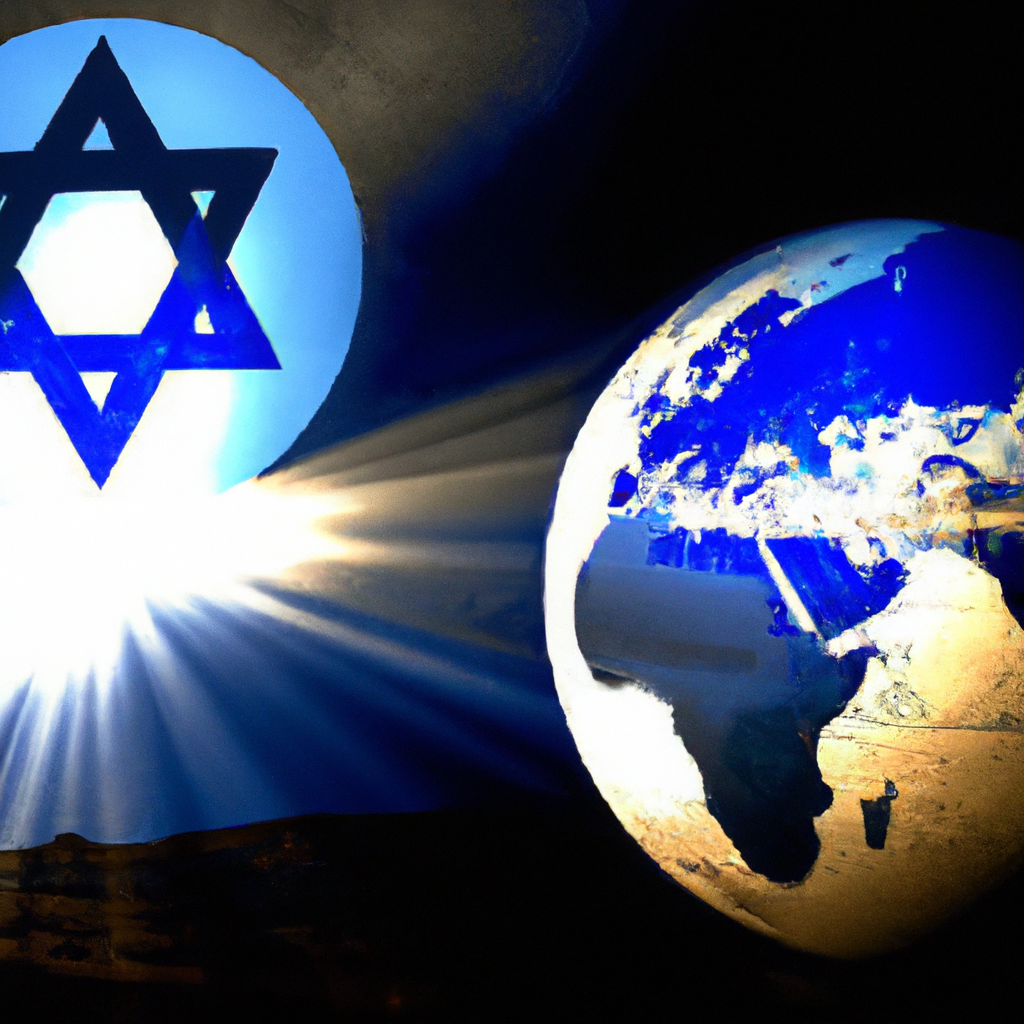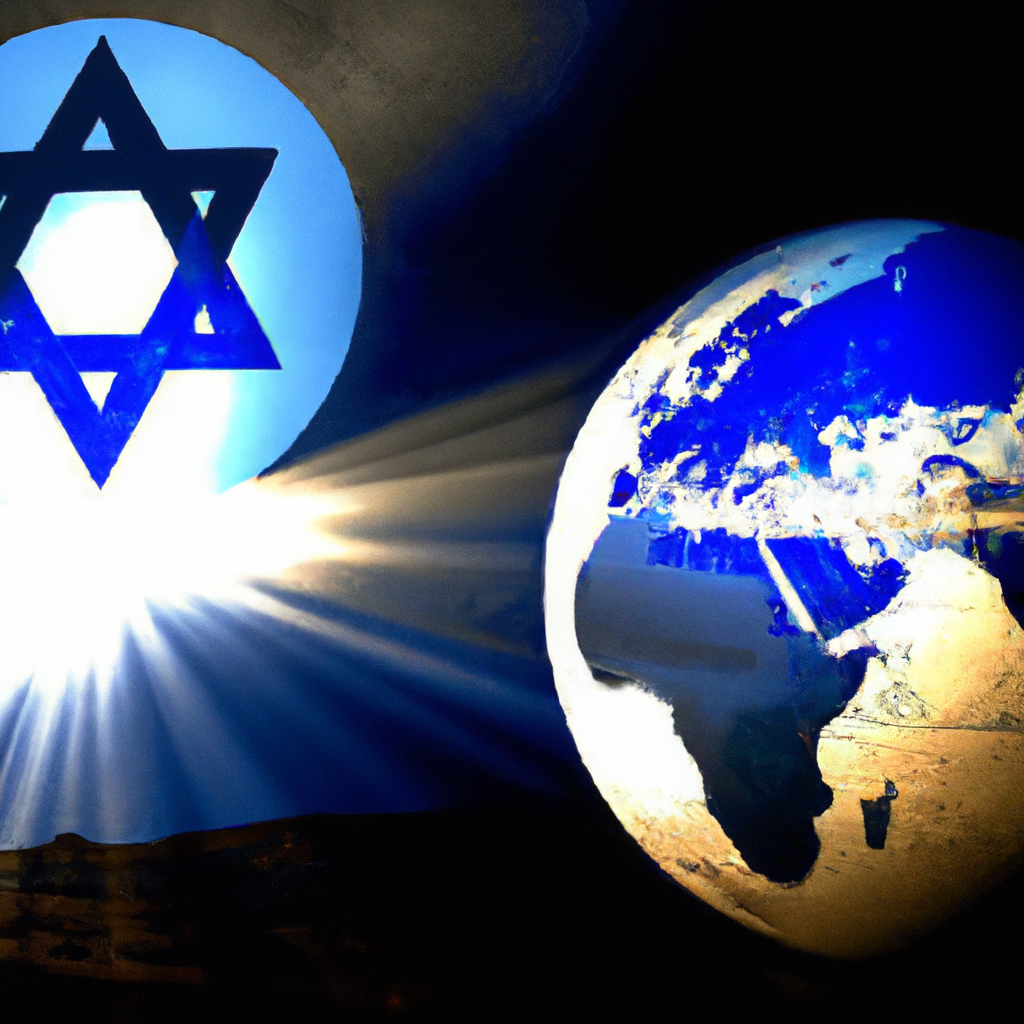In the fascinating exploration of the prophetic narrative surrounding Israel, one cannot overlook the significant roles played by various nations. From ancient times to the present day, this complex tapestry weaves together the interactions and influences of nations on the course of Israel’s destiny. Join us as we uncover the intricate threads that connect nations to the prophetic narrative, shedding light on the profound impact they have had and continue to have on Israel’s journey. Get ready to embark on a captivating journey through history and prophecy, illuminating the interconnectedness of nations with Israel’s destiny.

Historical Background
Introduction to the prophetic narrative related to Israel
In the biblical context, the prophetic narrative related to Israel holds significant importance. It traces back to the time of the ancestral patriarchs, Abraham, Isaac, and Jacob, who were promised by God to become a great nation. The descendants of Jacob, who was renamed Israel, went on to form the Twelve Tribes of Israel. The prophecies concerning Israel span through generations, depicting their trials, triumphs, and their interaction with various nations throughout history. These prophecies shed light on the role that different nations play in shaping the destiny of Israel.
Significance of the nations in the biblical context
The nations mentioned in the prophetic narrative related to Israel hold immense significance. Their interactions with Israel act as a backdrop against which God’s promises, judgments, and redemptive plans for Israel unfold. The nations often serve as the instruments of God’s will, whether it be as a means of judgment, chastisement, or restoration. By studying the roles of various nations, we can gain a deeper understanding of God’s ultimate purposes for Israel and how these nations fit into the larger prophetic narrative.
Egypt
Egypt’s role in the Exodus story
Egypt plays a prominent role in the prophetic narrative related to Israel, starting with the story of Moses and the Exodus. The Israelites, who were enslaved in Egypt for centuries, were ultimately freed through a series of miraculous events orchestrated by God. This liberation from bondage in Egypt became a foundational event in the history of Israel, marking their birth as a nation and solidifying their identity as the chosen people of God.
Pharaoh’s resistance against Moses and Israelites
Pharaoh’s resistance against Moses and the Israelites serves as a dramatic backdrop to the Exodus story. Despite witnessing the plagues and miracles performed by God through Moses, Pharaoh hardened his heart and refused to let the Israelites leave Egypt. This resistance ultimately led to the final and most devastating plague – the death of the firstborn – which compelled Pharaoh to release the Israelites.
Biblical prophecies concerning Egypt
The prophecies concerning Egypt reveal its ongoing significance in the prophetic narrative related to Israel. Despite the initial oppressiveness and resistance of Egypt, some prophecies suggest that Egypt will eventually turn back to God, acknowledging His sovereignty. These prophecies hint at a future time when Egypt will play a positive role in the restoration and redemption of Israel.
Assyria
Assyria’s conquest of Israel and Judah
Assyria’s conquest of Israel and Judah marks a significant turning point in the prophetic narrative. Israel, also known as the Northern Kingdom, was conquered by the Assyrians in 722 BC, resulting in the exile of the ten northern tribes. This event fulfilled the prophecy of the Assyrian captivity, which was foretold by various prophets.
The fall of Samaria and exile of the northern tribes
The fall of Samaria, the capital of the Northern Kingdom, and the subsequent exile of the northern tribes marked a time of great sorrow and loss for Israel. The Assyrians dispersed the Israelites throughout their empire, ensuring the end of the Northern Kingdom as they knew it.
Assyrian kings mentioned in prophecy
The kings of Assyria mentioned in the prophecies played vital roles in Israel’s history. Tiglath-Pileser III, Shalmaneser V, and Sargon II were among the powerful Assyrian rulers who brought destruction upon Israel and Judah. Their actions were divinely ordained, serving as instruments for God’s judgment on His disobedient and idolatrous people.
Babylon
Babylon’s rise to power and conquering of Judah
Babylon’s rise to power and the subsequent conquering of Judah marked another significant period in the prophetic narrative. After a series of rebellions against Babylonian rule, Jerusalem was besieged and destroyed by King Nebuchadnezzar II in 586 BC. This led to the Babylonian exile, which resulted in the captivity of the Southern Kingdom of Judah.
The destruction of the First Temple and exile of Judah
During the conquest, the magnificent First Temple in Jerusalem was destroyed, signifying a great tragedy in the history of Israel. The exile of Judah brought about a period of sorrow, reflection, and hope for the future restoration of Israel.
Biblical prophecies regarding Babylon
The prophecies concerning Babylon outline its role in the prophetic narrative related to Israel. While Babylon was used as an instrument of God’s judgment, there were prophecies that foretold its eventual demise and the deliverance of Israel from captivity. These prophecies offered hope and reassurance to the exiled Israelites.

Persia
Persian Empire’s role in the return and restoration of Israel
The Persian Empire played a crucial role in the return and restoration of Israel after their exile in Babylon. Under the rule of King Cyrus the Great, Persia conquered Babylon and issued a decree allowing the Israelites to return to their homeland and rebuild the Second Temple in Jerusalem. This decree marked a pivotal moment in the prophetic narrative, fulfilling the prophecies of the restoration of Israel.
King Cyrus and his decree to rebuild the Second Temple
King Cyrus of Persia is recognized as a key figure in the prophetic narrative related to Israel. His decree to rebuild the Second Temple not only fulfilled the prophecies concerning the restoration of Israel but also showcased God’s sovereignty and the fulfillment of His promises.
Prophetic references to Persia in relation to Israel
Prophetic references to Persia in relation to Israel extend beyond the time of the restoration. Some prophecies hint at a future role for Persia in the divine plans for Israel’s redemption and the establishment of God’s kingdom on earth. These references provide a glimpse into the ongoing relevance of Persia in the prophetic narrative.
Greece
The conquest of Israel by Alexander the Great
The conquest of Israel by Alexander the Great and the Hellenization of the region under the Seleucid Empire were significant events in the prophetic narrative. The Greek empire’s influence brought with it a new language, culture, and way of life that affected the Jewish people and their religious practices.
Hellenization of Israel under the Seleucid Empire
The Hellenization process, enforced by the Seleucid Empire, posed a challenge to the Jewish faith and traditions. The introduction of Greek customs and worship practices threatened to erode the unique identity and spiritual devotion of the Jewish people.
Fulfillment of prophetic visions during the Greek era
The Greek era witnessed the fulfillment of several prophetic visions, foretelling the rise and conquest of Greece and its subsequent influence on Israel. These prophecies demonstrated the omniscience of God and His ability to execute His plans, even within the changing dynamics of world empires.
Rome
Roman occupation of Israel during the time of Jesus
The Roman occupation of Israel during the time of Jesus marked a significant era in the prophetic narrative. The oppressive rule of the Romans, combined with Jewish religious and political tensions, led to the crucifixion of Jesus Christ, fulfilling prophecies regarding the suffering Messiah.
The destruction of the Second Temple by Rome
Following Jesus’ crucifixion, the Roman Empire dealt a devastating blow to Israel by destroying the Second Temple in 70 AD. This event marked the beginning of the Jewish diaspora, dispersing the Jewish people throughout the world once again.
Prophecies concerning Rome in the biblical narrative
The prophecies concerning Rome in the biblical narrative highlight its role as a powerful empire that influenced the destiny of Israel. While Rome was used as a tool of judgment in the destruction of the Second Temple, some prophecies also look forward to a future judgment upon Rome itself, indicating its ultimate downfall.
Modern Nations
The establishment of the State of Israel in 1948
The establishment of the State of Israel in 1948 has brought new dimensions to the prophetic narrative. After centuries of diaspora, the Jewish people returned to their ancestral homeland and proclaimed the State of Israel, fulfilling prophecies regarding the restoration of the nation.
Role of various nations in supporting or opposing Israel’s existence
Numerous nations have played a role in supporting or opposing the existence of Israel. The United States, for example, has been a staunch ally of Israel, providing political and military support. On the other hand, nations such as Iran have openly opposed Israel and called for its destruction, fueling conflicts and adding to the complexity of the prophetic narrative.
Relevance of current geopolitical events to biblical prophecy
Current geopolitical events continue to shape and affect the prophetic narrative related to Israel. Ongoing conflicts, peace negotiations, and global alliances all contribute to the unfolding of God’s plans for Israel. By understanding the relationships between nations and their actions, we can discern potential prophetic implications and gain insights into what the future holds for Israel.
Islamic Nations
Islam’s historical and contemporary relation to Israel
Islamic nations have historically had complex relationships with Israel. The Islamic faith views Jerusalem as one of its holy sites, leading to conflicts and tensions over control of the city. The religious and political dynamics between Islamic nations and Israel have been an influential factor in the prophetic narrative.
Arab-Israeli conflicts and their prophetic implications
The Arab-Israeli conflicts have played a significant role in the prophetic narrative related to Israel. These conflicts involve various Islamic nations and have ongoing implications for Israel’s security and geopolitical stability. Prophecies regarding the restoration and destiny of Israel include references to these conflicts and their resolution in the future.
Perspectives on the role of Islamic nations in the future of Israel
Different perspectives exist regarding the role of Islamic nations in the future of Israel. Some believe that Islamic nations will ultimately play a positive role in the redemption and restoration of Israel, while others see ongoing conflicts and tensions as indicative of a more contentious future. The interplay between Islamic nations and Israel continues to shape the prophetic narrative.
Conclusion
Summarizing the diverse roles of nations in the prophetic narrative
Throughout history, various nations have played diverse roles in the prophetic narrative related to Israel. From Egypt’s initial oppression to Persia’s decree for restoration, each nation has had a specific purpose in the fulfillment of God’s plans for Israel.
Reflections on the ongoing significance of this narrative
The ongoing significance of the prophetic narrative related to Israel lies in its reflection of God’s faithfulness, sovereignty, and redemptive plans. By studying the interactions between nations and Israel, we can gain a deeper understanding of God’s larger purposes for humanity. The prophetic narrative not only serves as a historical account but also provides hope and assurance that God’s promises will ultimately be fulfilled. As we navigate the complexities of the modern world, the prophetic narrative continues to guide our understanding of the past, present, and future.




